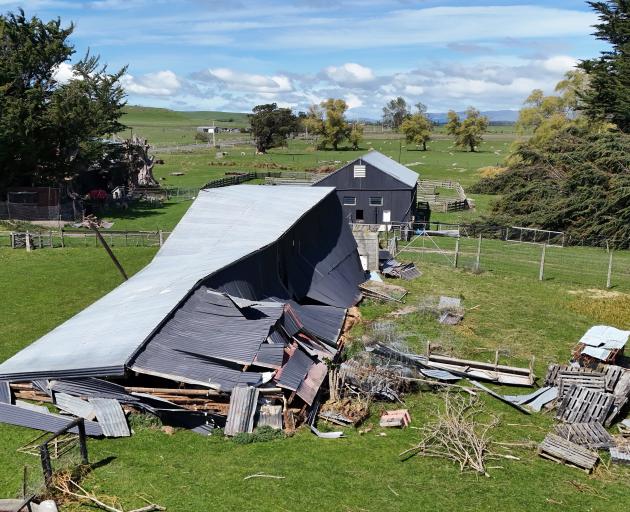
PowerNet, the lines network in the South, said it was still working through the full cost of the event but confirmed it would be in the millions.
- Call for action after trees take down power lines
- No roof, no power, no customers
- Photos: Destruction across the South
The event was felt right throughout the South as strong winds struck on October 23, leading to fences and trees blown over, roofs disappearing and power lines coming down all over Southland and South Otago.
PowerNet was faced with more than half its network disconnected and spent the best part of the next two weeks working on reconnecting the network.
A PowerNet spokesman said the full cost to the company was likely to be in the millions.
Insurance company FMG said it had received more than 3000 claims, which were expected to cost more than $28m, relating to the windstorm.
"Of these claims, approximately 1500 are from Southland and 700 are from Otago. We’re not expecting the number of claims to change significantly now," an FMG spokeswoman said.
"We’re continuing to work to resolve claims as quickly as possible — with 10% of claims closed and over $1.5m already in communities."
Insurance Council of New Zealand spokesman Patrick O’Meara said about 10,000 claims had been lodged across New Zealand as a result of the event.
"Southland and Otago make up a significant proportion of these, of up to 70%, although the exact share differs from insurer to insurer," he said.
"Most of the claims received to date are for wind-related damage, and insurers are working with customers to assess and progress these as quickly as possible."
Environment Southland had been actively responding to the impact from the wind event, acting operations delivery manager David Adamson said.
A considerable amount of tree clearing had been required, particularly in smaller rivers, streams and drainage networks where fallen trees had obstructed or posed a risk of obstructing water flow, he said.
Fortunately, major rivers and flood banks were not as severely affected in Southland.
Council maintained tree-free corridors along critical infrastructure such as flood banks, dams and spillways. Environment Southland could not supply costs it had incurred.
Otago Regional Council engineering manager Brett Paterson said work to assess the damage from the wind event was ongoing.
About 65 damage sites had been identified with an estimated cost of $345,000. Much of the damage was in South Otago. The repair work was under way and expected to continue for the coming months.
Dunedin City Council city services general manager Scott MacLean said the council to date had logged more than 350 jobs across its roading network and parks and reserves. That included fallen trees, sign damage, hand and guardrail damage and wind-blown debris.
Costs had yet to be finalised as work continued.
Invercargill City Council chief executive Michael Day said the cleanup of the damage the community sustained would take weeks — if not longer.
Council staff from across multiple teams within the organisation worked tirelessly in the immediate aftermath of the weather event, and many continued to do so, he said.
"They put in a huge effort, and we really appreciated the support, encouragement, and patience the people of Invercargill and Bluff have shown as we worked to get things back to normal," he said.
Most parks and reserves were now open again. The recovery process at Queens Park in particular would take a considerable amount of time, so would happen in three phases.
Clutha District Council deputy chief executive Jules Witt said the estimated cost for the Clutha District Council was $537,000 in direct costs.
There had been minor damage to treatment plants, although the costs related to the cleanup. Three of the main parks in Clutha remained closed due to extensive damage.













